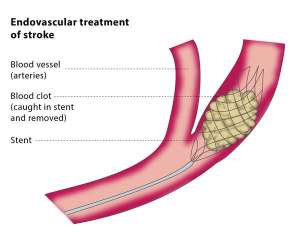
Having seen personally the difficulties experienced by stroke survivors and their families, I am aware of the tremendous load caregivers bear, even though they are essential to the recuperation and wellbeing of their loved ones. Taking care of someone who has had a stroke may be a taxing and sometimes stressful experience that presents many practical, emotional, and physical difficulties. Caregivers are not traveling alone, though. To efficiently traverse the caregiving process and guarantee the best potential outcomes for both the survivor and themselves, they can avail themselves of services and support networks.
The intricacy of the caregiving position is one of the biggest obstacles faced by caregivers of stroke survivors. Stroke survivors may need continuing medical treatment, rehabilitation, and emotional support in addition to assistance with everyday living tasks like eating, dressing, and bathing. Caregivers may have significant physical and psychological strain as a result of having to balance a number of obligations along with managing their own stress, worry, and bereavement.
Access to extensive resources and support networks is crucial for assisting caregivers in their task. This covers instructional resources on stroke recuperation, rehabilitation methods, and approaches to handling typical caring obstacles. Additionally, caregivers have to be linked to healthcare providers, including social workers, nurses, and therapists, who may provide direction, assistance, and connections to other resources as required. Peer support networks and community-based groups, which offer a safe environment for sharing experiences, exchanging information, and providing emotional support, can be extremely beneficial to caregivers in addition to professional help. Support groups may be very helpful in providing stroke survivors' carers with motivation, validation, and useful guidance. They can also make caregivers feel less alone and more in control of their caring journey.
Additionally, technology may be quite helpful in aiding stroke survivors' carers. From the comfort of their homes, caregivers may interact with healthcare experts and other caregivers, seek guidance and information, and access resources through telehealth programs, virtual support groups, and online forums. Additionally, respite care services allow caregivers the chance to emphasize their own well-being and self-care while taking a much-needed break from their caring duties. Respite care can help prevent caregiver burnout and ensure that caregivers are able to continue providing high-quality care over the long term. It can do this by arranging for a temporary caregiver to assist while they take time off or by using day programs or adult day care services that offer supervised activities for the stroke survivor.
To sum up, loved ones who are cared for by stroke survivors need support and rehabilitation more than ever, yet they cannot do this on their own. By offering caregivers access to extensive resources, support systems, and respite care services, we can enable them to successfully traverse the caregiving path and guarantee the best potential outcomes for the survivor as well as for themselves. I am dedicated to speaking out for caregivers' needs and making sure they get the respect and assistance they need as a neurosurgeon.




 Mahama was a one-term president because he was incompetent and brought untold ha...
Mahama was a one-term president because he was incompetent and brought untold ha...
 Shortage of ‘bentua’ hits Accra Central Market
Shortage of ‘bentua’ hits Accra Central Market
 Blame IMF programme for Cedi's decline —Prof Bokpin
Blame IMF programme for Cedi's decline —Prof Bokpin
 Court denies Kasoa soldier killer bail
Court denies Kasoa soldier killer bail
 All crooked deals are cooked at Jubilee House – Franklin Cudjoe
All crooked deals are cooked at Jubilee House – Franklin Cudjoe
 Don’t be tricked by Mahama’s rebranding move – Richard Ahiagbah to Ghanaians
Don’t be tricked by Mahama’s rebranding move – Richard Ahiagbah to Ghanaians
 Petition against Kissi Agyebeng not surprising – Justice Srem Sai
Petition against Kissi Agyebeng not surprising – Justice Srem Sai
 Akufo-Addo’s handling of petitions against top officials disappointing – Justice...
Akufo-Addo’s handling of petitions against top officials disappointing – Justice...
 Osino: ‘Sleeping’ tipper truck driver runs into building
Osino: ‘Sleeping’ tipper truck driver runs into building
 Ahmed Suale's killers will be brought to justice no matter how long it takes - A...
Ahmed Suale's killers will be brought to justice no matter how long it takes - A...
